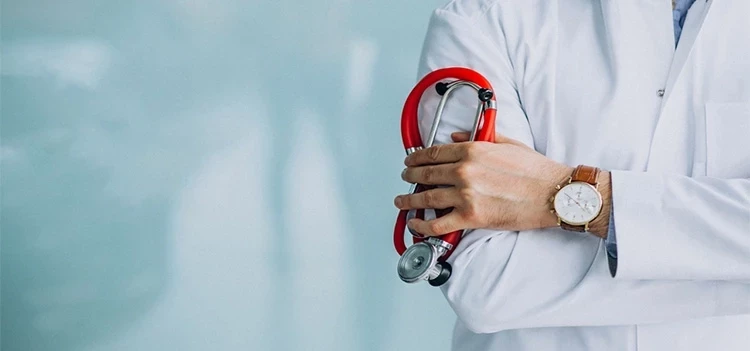What After MBBS? Top Career Options and Higher Studies to Consider

Completing an MBBS degree is a moment of pride and achievement for any hopeful doctor. However, the journey does not end there. For many people, this is just the beginning. With medical science, health technologies, and the development of patient treatment practices, MBB's news has a wide range of career paths and additional alternatives for higher education. Many students studying in top MBBS colleges in Bangalore often ask an important question: What is next after MBBS? This guide examines the most promising opportunities, whether you are out of clinical practice, research, administration, or something beyond traditional roles. Let's dive!
1. Postgraduate Medical Education—The Natural Next Step
One of the most common routes, according to MBB's pursuit of postgraduate degrees such as MD (Doctor of Medicine), MS (MS of Surgery), or DNB (Diplomate of the National Board). This competence allows doctors to gain intensive knowledge in specific areas such as pediatrics, general surgery, gynecology, psychiatry, and more.
Candidates usually appear for entrance exams such as NEET-PG or INI-CET to get recordings in research programs. Not only does a PG qualification increase your expertise, but it also increases your professional reliability and earning ability.
2. Super Specialization—DM and MCh Courses
For those who want to go even further in their medical career, superplasmology is an attractive alternative. After completing an MD or MS, candidates can continue with a DM (Doctor of Medicine) or MCH (Master of Surgery) in subjects such as cardiology, neurology, gastroenterology, and surgery.
These programs require years of dedication but provide unmatched career opportunities in both private and government sectors. Super experts are very in demand, and many international healthcare workers also find opportunities.
3. Non-Clinical and Paraclinical Specialties
Each MBB candidate does not include direct patient care or surgery. Many doctors choose non-noddic and paralyzing specialties, including teaching, research, and diagnosis.
Some popular options include
-
Pathology: Study of disease through laboratory analysis.
-
Microbiology: Focus on bacteria, viruses, and other microorganisms.
-
Pharmacology: Intensive study of medicines and their effects.
-
Forensic medicine: Application of medical knowledge in legal conditions.
-
Community Medicine: focusing on the Public Health Initiative.
These areas are ideal for those who want to contribute to the substance without being on the clinical front line.
4. Career opportunities beyond traditional medicine
Medical graduates are not bonding. It is enormous and provides different opportunities, including
-
Medical administration: Working in hospital management and health policy.
-
Medical writing: Making materials for textbooks, magazines, or digital health platforms.
-
Clinical research: contribution to new treatment or development of medicines.
-
Public health: Work with national and international organizations such as WHO, UNICEF, or NGOs.
-
Medical coding and health services IT: A growing industry for technical service doctors.
-
Entrepreneurship: Launch of your own clinic, telemedicine app, or health-tech start-up.
If you have studied at one of the MBBS colleges in Bangalore, you will find many innovative career paths that are promoted through collaboration with workshops, internships, and health firms.
5. Study Abroad and Global Certifications
Another exciting way is to study or work abroad. Countries such as the United States, the United Kingdom, copyright, Australia, and Germany provide advanced training, scholarships, and job opportunities to international medical graduates.
You may need to clean specific studies based on the destination:
-
USMLE (United States)
-
PLAB (United Kingdom)
-
AMC (Australia)
-
MCCQE (copyright)
-
FSP/Approbation (Germany)
In addition to clinical training, you can also perform reputable certifications globally in hospital management, global health, epidemics, and telemedicine.
General questions the students ask after MBBS
1. What is the best competence after MBBS in terms of salary and scope?
Although wages should not be the only factor, areas such as radiology and state-of-the-art laboratories are often considered high-devotion and in demand. However, the "best" option depends on your passion and interest.
2. Can I chase an MBA after MBB?
Yes! An MBA in hospital administration or health care is becoming increasingly popular with doctors who want infection in leadership roles in the health care system.
3. Is it compulsory to do PG after MBBS?
No, this is not mandatory. Many MBBS new graduates begin to practice as general doctors, go into public service, or work with voluntary organizations. However, PG qualification increases competence and long-term opportunities. short-term or
4. Are there any short-term or diploma courses after MBBS?
Absolutely. There are many diploma courses in areas such as anesthesiology, ophthalmology, maternity science and gynecology, and more. These are good to provide specialized expertise in the short term.
5. What are some non-medical career opportunities after MBBS?
You can find a career in artificial intelligence in medical journalism, law (medico-legal), public policy, medical counseling, health, and healthcare.
Final Thoughts: Choose the Path That Aligns With Your Passion
Choosing what to do after MBBS can make it feel heavy, but it is also an exciting time filled with opportunities. Whether you decide to become an expert, make the effort in research, or find out about non-conventional roles, your medical degree opens its doors to impressive careers worldwide.
If you are still about to serve your degree, choosing the right college can make all the difference. When considering alternatives, students often detect the best MBBS colleges in Bangalore because of the city's strong academic ecosystem and top-notch health institutions.
The city is home to some top MBBS colleges in Bangalore, known for their educational skills, research facilities, and clinical training. These institutions not only provide a solid foundation in the MBBS course in Bangalore but also provide internships and networking opportunities to guide your post-MBBS tour.
Comments on “After MBBS: Your Guide to Specialization, Super-Specialization & More”